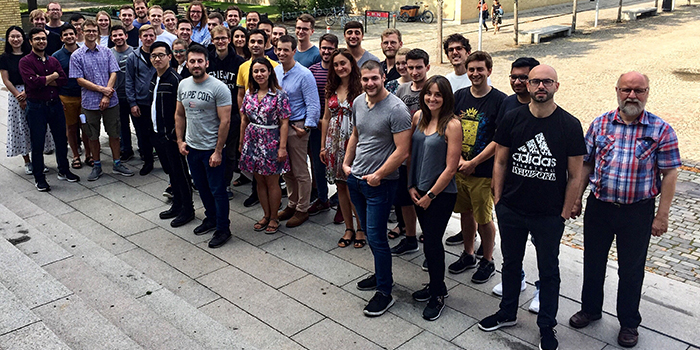Last year, the pandemic changed several of the traditional summer schools to online courses. The reorganization supports DTU’s goal of promoting the UN’s SDG. And now DTU is evaluating the experiences.
—
Large parts of Denmark are looking forward to reopening after the Corona lockdown, thus also the field of education. At DTU, we are in the process of evaluating the experiences from last year’s hybrid and virtual teaching to see what to use going forward.
In the section for Dynamic Systems (DynSys) at DTU Compute, Professor Henrik Madsen and his team have gathered important experiences that will be useful in future.
Henrik Madsen and a small team were booked to teach at a summer school in Rio de Janeiro in July 2020 for 40 participants. But during the spring, it became clear that the Corona crisis made it impossible to travel to Brazil, so the course was postponed to November and at the same time changed to an online course.
DynSys’ summer school at DTU in August also had to be rethought, so they went online with 55 participants, primarily from Europe, while 20 were physically present at DTU. It went so well that the department’s summer schools will in future in any cases be hybrid or 100 % online.
“After all, our summer school is precisely about how to achieve CO2 savings and create a fossil-free future. So at a time when we have to take the climate into account, it is also only natural that participants can follow online from home without travelling to the other side of the globe to participate,” says Henrik Madsen.
Online courses speak directly into the UN’s Sustainable Development Goals, as DTU as a university works from. Newly adopted guidelines for transport and meeting activity for DTU’s employees and students must reduce DTU’s transport-related CO emissions by utilizing digitalisation to promote virtual meeting and teaching activity.
Reach out to new audiences online
Online education also promotes SDG 4, which aims to ensure equal access for all to quality education and promote opportunities for all lifelong learning opportunities. Because online, DTU’s knowledge reaches further than usual.
“After all, our summer school is precisely about how to achieve CO2 savings and create a fossil-free future. So at a time when we have to take the climate into account, it is also only natural that participants can follow online.”
Henrik Madsen, Professor at DTU Compute
“Many of the participants would probably not have been able to afford to travel to Rio if the summer school had taken place there. We rarely see people from eg the Caribbean and Indonesia at conferences and summer schools. I personally think that it also gave me wind beneath my wings to teach researchers from all around the world online,” says Henrik Madsen.
DTU gathers experience
However, the pandemic does not change the fact that DTU is basically a physical university, emphasizes Lars Christoffersen, dean of bachelor programs and study environment at DTU:
“We see a great value in meeting physically. In the field of continuing education, however, there are still more things online. And we will also do that in other contexts. But we have not made a decision about it yet. We are still in the process of picking up on good experiences and things that have not worked well online.”
“But it is clear that when you at courses and summer schools see that students come from all over the world, it offers new opportunities. So it’s nice to test the format and share the experience,” says the dean.
Peder Bacher, Associate Professor and Head of DynSys’ the annual summer school in August, had prepared the assignment part together with two PhD students for the Rio course. He usually prefers physical education:
“I want the students to feel that they participate in something social and network at the summer school. That’s not quite so easy when we do not know each other in advance and sit online in different time zones. So we need to work more on that. But I also have to acknowledge the value for ‘humanity’ when people around the world have the opportunity to participate,” Peder Bacher says.
The photo at the top of the article is from the summer school in 2019, before the Covid-19 crises.
—
JOIN THE SUMMER SCHOOL 2021
The summer school Time Series Analysis – with a focus on Modelling and Forecasting in Energy Systems. Online summer school 23. to 27. August 2021. In any case, participation can be online. If restrictions allow, it will also be possible to be physically present at DTU, Denmark: Learn more here
UN’s – Sustainable Development Goals
SDG 4: QUALITY EDUCATION
Ensure inclusive and equitable quality education and promote lifelong learning opportunities for all
SDG 7: Affordable and Clean Energy
Ensure access to affordable, reliable, sustainable and modern energy for all
SDG 13: CLIMATE ACTION
Take urgent action to combat climate change and its impacts
Sources: DTU’s guidelines for transport and meeting activity and UN

